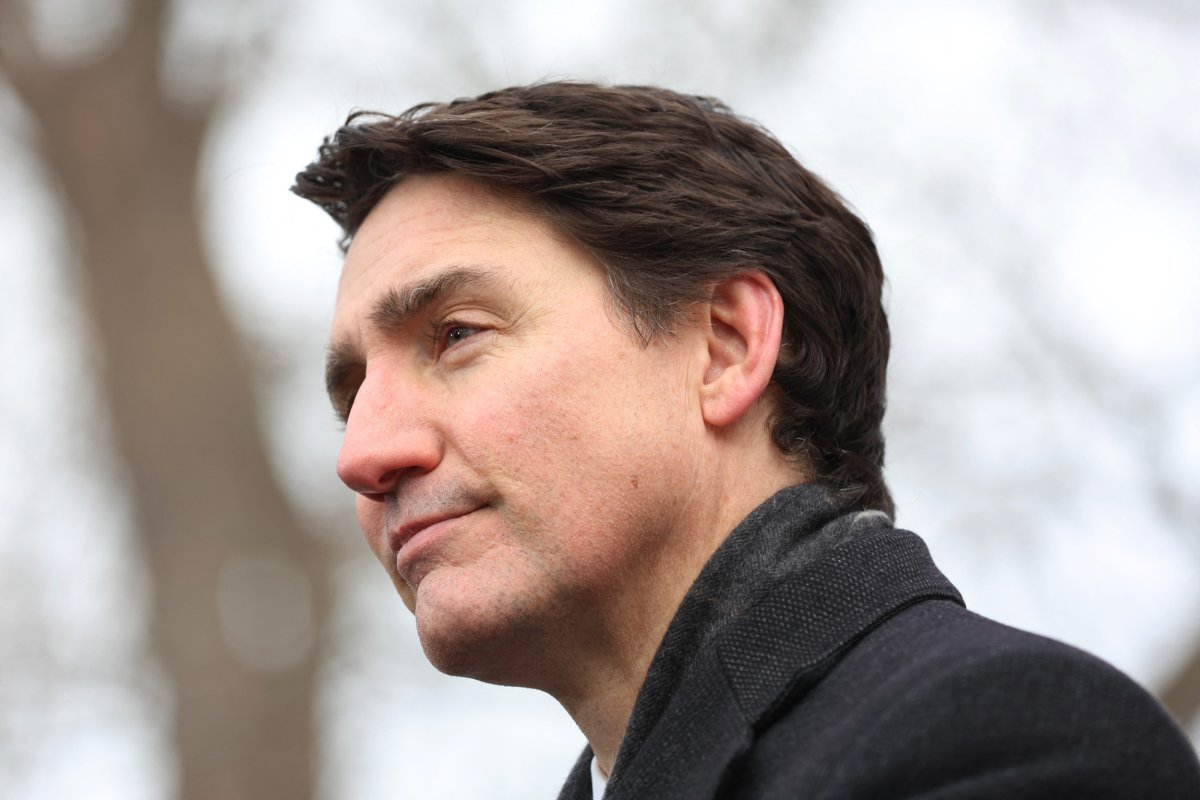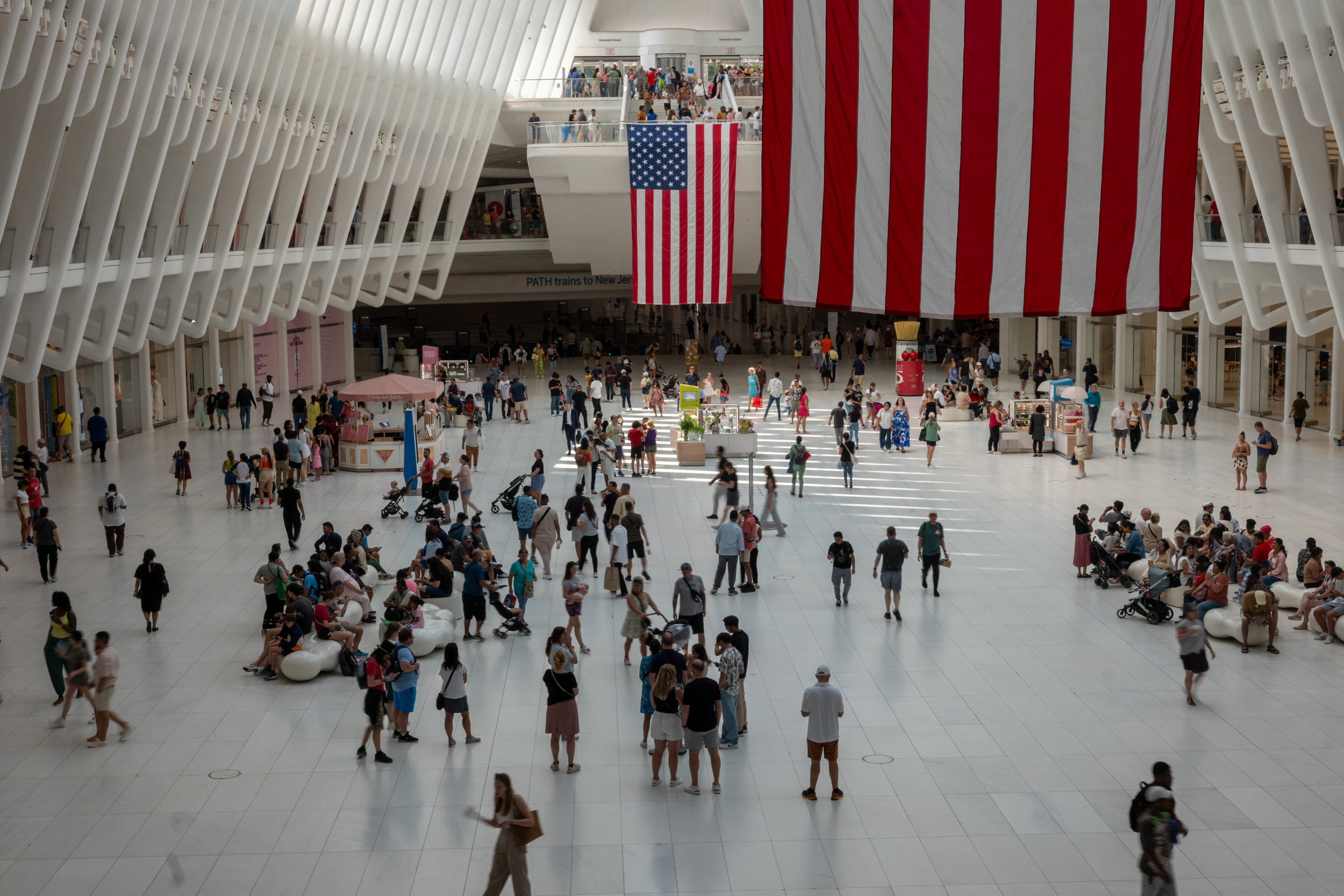Canada is preparing retaliatory measures on U.S. imports and potentially cutting off its energy supply to its southern neighbor if President-elect Donald Trump follows through on his 25 percent tariff threat, according to several reports.
Newsweek contacted Canadian Prime Minister Justin Trudeau's office and the Trump transition team for comment via email outside of regular working hours.
Why It Matters
Canada's proposed countermeasures underscore the potential for a diplomatic crisis between the two allies if Trump implements his tariff threats. The tension could escalate soon after the Republican takes office on January 20.

What to Know
Canada has drawn up plans to impose tariffs on U.S. imports worth C$150 billion ($105 billion) if Trump follows through with his 25 percent tariff plan, Reuters and Bloomberg have reported, citing unnamed sources.
The list of potential tariffed goods is a draft and would only be implemented if Trump introduces major tariffs against Canada first, the sources said.
Trump has threatened the tariffs unless Canada addresses the flow of fentanyl and illegal migration at the northern border. The U.S. is Canada's largest trading partner, accounting for 75 percent of Canadian exports.
At a press conference Wednesday following a meeting in Ottawa with Canada's provincial premiers to discuss Trump's threats, Trudeau said "everything is on the table." One possible measure that has been floated is restricting energy and oil exports to the U.S.
Canada is the largest energy supplier to the U.S, providing 98 percent of its natural gas imports and 93 percent of its electricity imports in 2020, according to Canadian government data.
Trudeau vowed that any response to U.S. tariffs would not disproportionately burden one Canadian province over others.
Alberta Premier Danielle Smith has opposed such measures, warning that they could have a devastating impact on the province's economy. Around one quarter of the oil consumed daily in the U.S. comes from Canada, with Alberta exporting 4.3 million barrels a day.
Ontario Premier Doug Ford, who wore a MAGA-style blue cap reading "Canada is not for sale" at Wednesday's meeting, said the country must show a "united front" against Trump's tariffs.
In a joint statement, premiers of 12 of Canada's 13 provinces and territories pledged to work together to ensure a "robust response to possible U.S. tariffs." Smith did not sign the statement.
Trump has suggested that Canada could become the 51st state of the U.S. if it wants to avoid paying the proposed tariffs.
What People Are Saying
Canadian Prime Minister Justin Trudeau, at Wednesday's press conference: "We have made it very clear that everything is on the table as potential responses, but we've also been very, very clear that it has to be fair across the country. If the American administration moves forward with its plans on tariffs, it will first and foremost hurt American citizens and American consumers, but it will also hurt Canadians."
Ontario Premier Doug Ford, at Wednesday's press conference: "When Donald Trump comes at us, he's not going to say, 'Well, let's not worry about Ontario—they're good people—or Alberta.' He's coming full tilt at Canadians as a whole. Donald Trump is a brilliant negotiator. That's what he's done his whole life, and that's exactly what he's doing. He's sitting there with a big smile on his face thinking, 'Wow, I'm going to divide and conquer.'"
Canada's first ministers, in Wednesday's joint statement: "While they are making every effort to prevent U.S. tariffs, First Ministers are committed to continuing to work together on a full range of measures to ensure a robust response to possible U.S. tariffs, including supports for sectors, businesses, and individuals. If the federal government implements retaliatory measures, it will ensure the rapid availability of substantial resources that effectively mitigate economic impacts to workers and businesses. This includes, but is not limited to, the distribution of revenues from potential retaliatory tariffs as quickly as possible."
Alberta Premier Danielle Smith, posted on X, formerly Twitter: "Federal government officials continue to publicly and privately float the idea of cutting off energy supply to the U.S. and imposing export tariffs on Alberta energy and other products. Until these threats cease, Alberta will not be able to fully support the federal government's plan in dealing with the threatened tariffs. Alberta will simply not agree to export tariffs on our energy or other products, nor do we support a ban on exports of these same products."
President-elect Donald Trump, posted on Truth Social on January 6: "Many people in Canada LOVE being the 51st State. The United States can no longer suffer the massive Trade Deficits and Subsidies that Canada needs to stay afloat. Justin Trudeau knew this and resigned. If Canada merged with the U.S., there would be no tariffs, taxes would go way down, and they would be TOTALLY SECURE from the threat of the Russian and Chinese ships that are constantly surrounding them. Together, what a great Nation it would be!!!"
What Happens Next
Trudeau will step down as prime minister once his ruling Liberal Party selects a new leader. This is expected to take place before the end of March.
A Canadian election will follow, though no date has been announced. It must take place by October 2025.




















 English (US) ·
English (US) ·